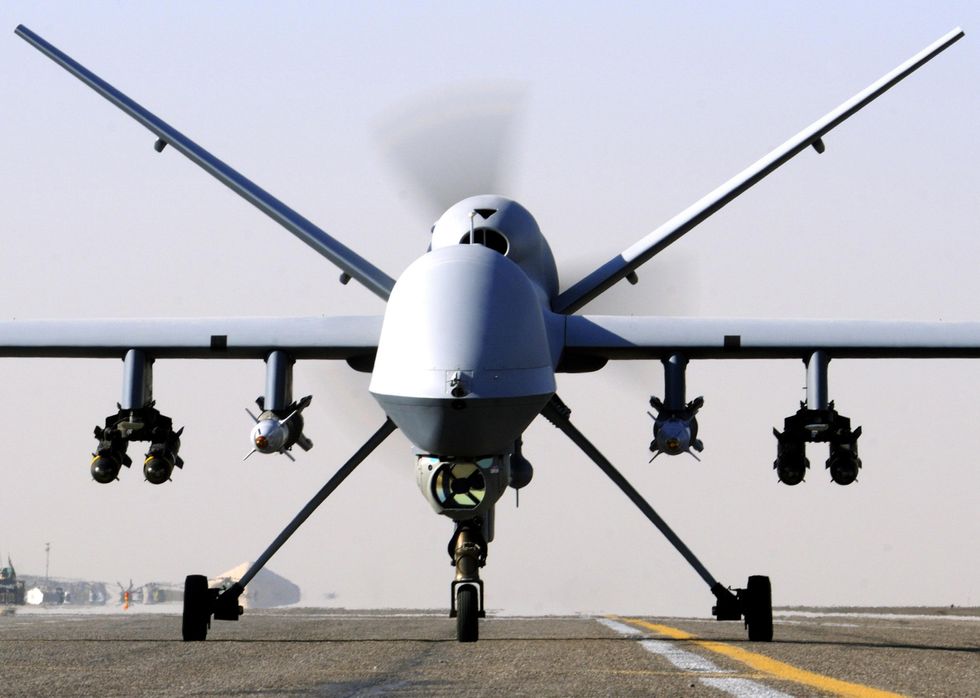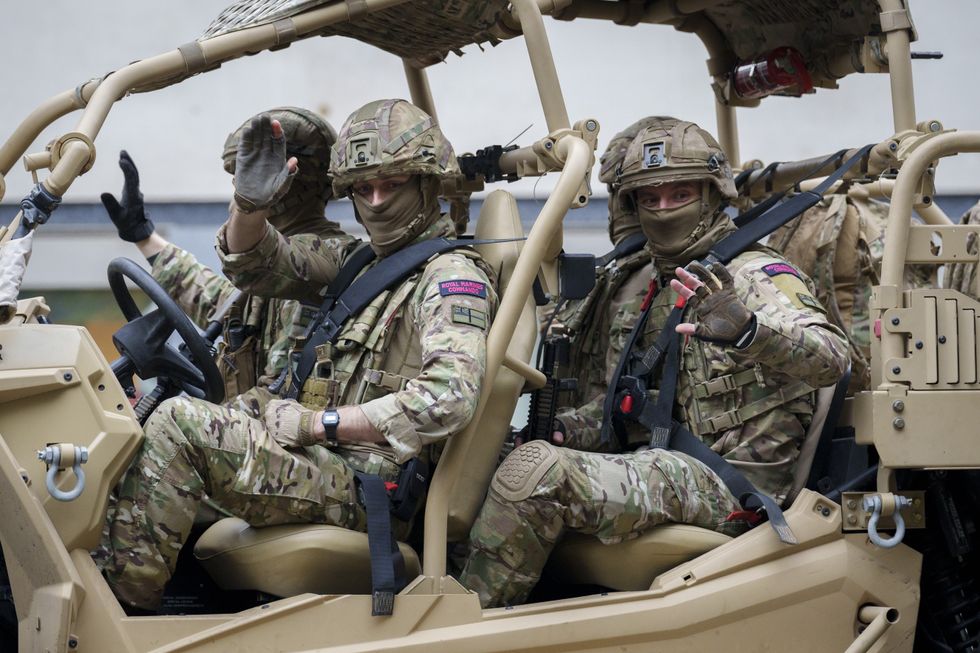An RAF drone killed a suspected Isis terrorist since human rights laws prevented the SAS from capturing the man.
The Reaper drone launched two missiles at the biological weapons engineer, according to reports from The Times.
After people learned of this case, former SAS members have openly criticised the lengthy investigations into soldiers’ actions, insisting that they were not “mad dog” assassins.
The British Government first identified the engineer from Yemen – based in a northern Syrian village – at the end of 2022.

The Reaper drone launched two missiles at the biological weapons engineer (Stock)
PA
His phone and computer were believed to contain personal information of others within the network or information to prepare for an Isis attack.
However, if military troops confiscated the devices, there was concern that they would not be able to subsequently capture and detain him, The Spectator said.
Under the ECHR, the suspect would have to be released because it would be illegal to hand over someone suspected to be a terrorist to Syria over risk of torture, while it would also be illegal to transport him to the UK due to a lack of extradition treaty.
Consequently, the RAF Reaper drone was seemingly deployed to kill him.
LATEST DEVELOPMENTS:
Before he lost the Tory leadership election to Kemi Badenoch, shadow justice secretary Robert Jenrick claimed that the SAS was forced to kill – instead of detain – terrorists because “the European Court will set them free”.
Former Conservative defence secretary Ben Wallace said that he would have preferred a UK trial “rather than making those who seek to do us harm into martyrs”.
As a result, many members of the special forces have been taken to court following an inquiry into a claim that they murdered innocent Afghans during the war – with some even suspecting that the troops planted weapons on them.
Repeated investigations have dated back as far as the Troubles in Northern Ireland.

Repeated investigations have dated back as far as the Troubles in Northern Ireland (Stock)
GETTY
An ex-soldier – who served in the SAS for 34 years – had attempted to commit suicide after he was left in “limbo” in the legal system for 20 years.
He was part of a squad that killed four IRA members in 1992 and had been made to provide four or five statements about the night’s events.
He said: “We are being scapegoated … and are subject to the whims of successive governments … when this latest inquiry began, I found myself spiralling downward.”
Former commanding officer Colonel Richard William said his regiment was not full of “mad dog” assassins, saying: “Special Forces are not above the law. Full stop.”
He added that they must have “the freedoms to execute important actions on behalf of the state”.